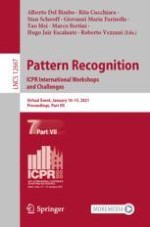2021 | OriginalPaper | Chapter
Remembering Both the Machine and the Crowd When Sampling Points: Active Learning for Semantic Segmentation of ALS Point Clouds
Authors : Michael Kölle, Volker Walter, Stefan Schmohl, Uwe Soergel
Published in: Pattern Recognition. ICPR International Workshops and Challenges
Publisher: Springer International Publishing
Activate our intelligent search to find suitable subject content or patents.
Select sections of text to find matching patents with Artificial Intelligence. powered by
Select sections of text to find additional relevant content using AI-assisted search. powered by
